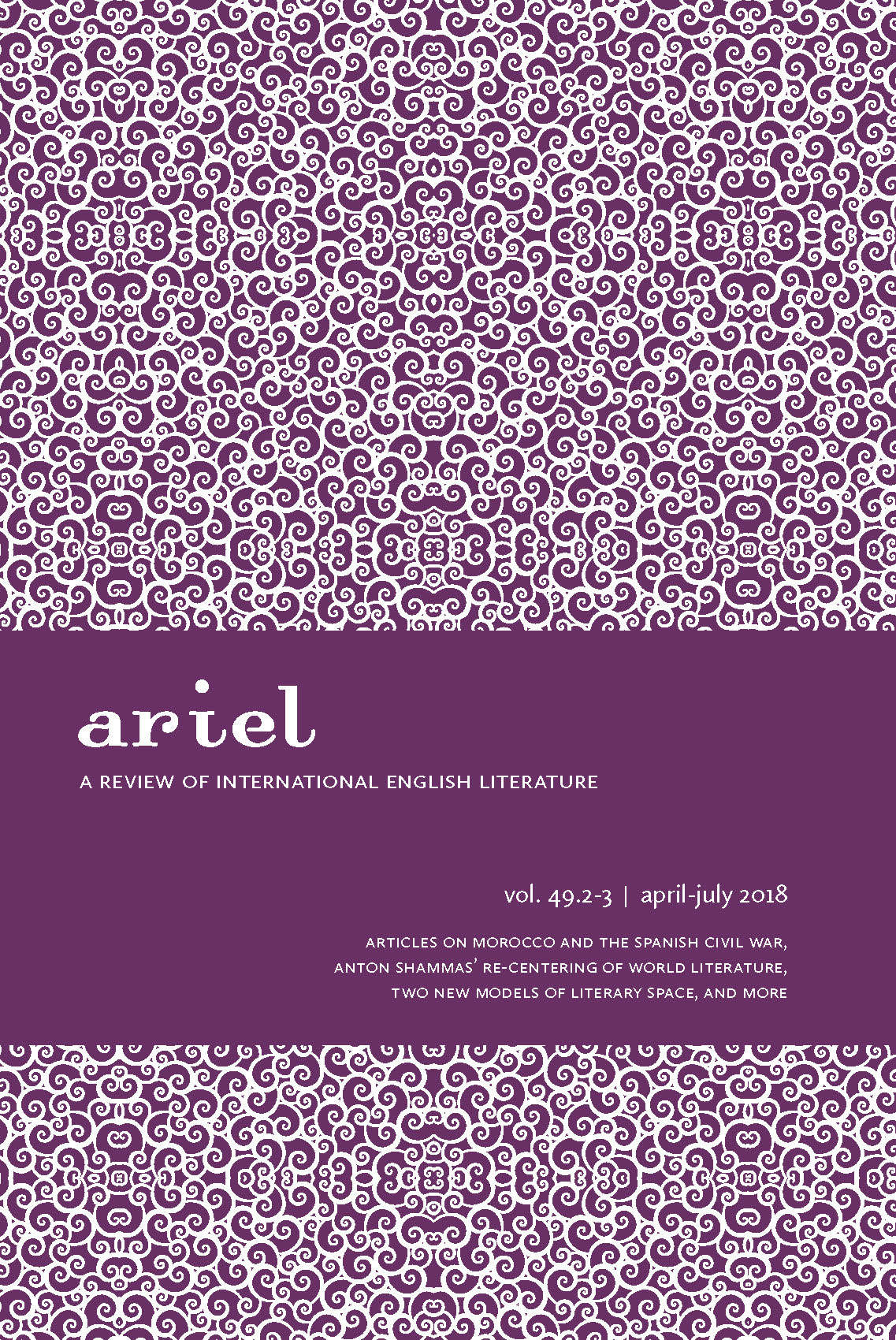Over the Edge: Risk, Ecology, and Equivalency in Will Ferguson’s 419
Keywords:
Will Ferguson, 419, risk, ecology, Nigerian oil economyAbstract
In Will Ferguson’s 419, apparent equivalencies between Canadian and Nigerian risk-taking characters are contradicted by the reality of an uneven global playing field—one in which risk and reward, sacrifice and suffering, and the autonomy and skill to navigate dangerous situations successfully are distributed following lines of privilege and wealth that derive from colonial history and the globalized economy’s North/South divisions. Drawing on risk theorists Mary Douglas and Ulrich Bech, I argue that, at the individual and interpersonal level, risk in 419 is more outsourced and offloaded than shared. Beyond individual risk, this novel of three locales—Calgary, Lagos, and the Niger Delta—details the ecological devastations of high-risk oil extraction in the Delta, links that activity briefly to Alberta oil, yet elides the local effects of Alberta’s oil industry. The novel’s lopsided ecological lens enables it to make vivid what Rob Nixon calls the globalized economy’s “slow violence” toward the poor, but its representation of oil economies and ecologies—like its treatment of individual risk—throws off-balance the very transcontinental equivalencies and correspondences it seems otherwise eager to establish. In the process, the novel compromises its treatment of the moral responsibility, justice, and accountability that Douglas sees as intrinsic to risk, while limiting its ability to explore themes of environmental justice comparatively across disparate local ecologies put at risk by oil.


